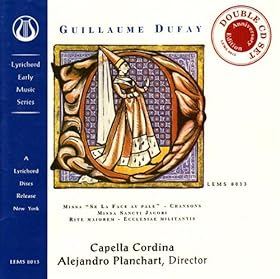I really enjoyed my drive down the East Coast. Of course, first I went south to Campbell Town (and had an alright lunch there), but then I took the Lake Leake Highway, through the not terribly inspiring bushclad hills, and then out onto the coastal plans, astonishingly verdant for this time of year, north of Swansea. It was great to see the effects of rain in an area drought-stricken for years... though, now I think of it, it's been eight years since I was last anywhere near this part of Tasmania.
To-day has been quite hot - 25 degrees or so - and it was magic to come down to Swansea, stop the car, and walk down to the end of the jetty, with Oyster Bay spread out before me under a clear brilliant sky, and the Hazards on the horizon, outlining the great granite mass of the Freycinet Peninsula. A little while later, I found that the local Catholic Church of Our Lady of Perpetual Succour was open (touchingly, they leave the key in the lock), and so I went in and read Matins, Lauds and Prime of the Blessed Virgin (better late than never). The Church is very small, but old, and obviously cared for; the parishioners only get Mass once a month.
I headed further south, enjoying the magnificent scene: the road running along the sea above a rocky shore rising abruptly from Oyster Bay, with the Peninsula, Schouten Island and Maria Island all gracing the horizon with their rugged mountainous outlines. Stopping very briefly at Triabunna and Orford, the great mass of lofty Maria Island presented an awesome prospect.
Then, on to Buckland in the interior, the road turning inland and upward at last: and, at Buckland, I stopt and prayed Terce at the Anglican Church of St John Baptist (built 1846) - for the east window is Catholic, being known as stained glass from Battle Abbey, established by William the Conqueror at Hastings, then looted by Henry VIII. Somehow, this fourteenth century stained glass escaped the Puritan iconoclasts, and ended up shipped out to colonial Van Diemen's Land...
I could clearly read the Latin inscriptions under the upper images of Our Lady and St John, either side of an image of the Crucifixion: S. Maria Deipara (Holy Mary Theotokos) and Scts Joannes (St John). The glass shews in the centre, lower down, the Baptist baptizing Christ, and on the left St John pointing to the Lamb of God, and on the right the head of the martyred John being given by a soldier to wicked Salome (an apt foreshadowing of the fate of Catholic property in heretical, Erastian England).
Now, having driven on over Break-me-head and Bust-me-gall Hills, and the even more strangely named Black Charlie's Opening (all very steep twisty roads originally opened up by convict chain gangs in the bad old days), and passed through Sorell, and over the causeways to Midway Point, I've finally come through the last range of hills and over the Derwent into Hobart.
It's been a rewarding drive; perhaps next time I'll leave earlier, and drive the whole East Coast, first passing through Scottsdale, then down past St Helens and St Mary's, over Elephant Pass... [Then again, maybe not on second thoughts!]
I headed further south, enjoying the magnificent scene: the road running along the sea above a rocky shore rising abruptly from Oyster Bay, with the Peninsula, Schouten Island and Maria Island all gracing the horizon with their rugged mountainous outlines. Stopping very briefly at Triabunna and Orford, the great mass of lofty Maria Island presented an awesome prospect.
Then, on to Buckland in the interior, the road turning inland and upward at last: and, at Buckland, I stopt and prayed Terce at the Anglican Church of St John Baptist (built 1846) - for the east window is Catholic, being known as stained glass from Battle Abbey, established by William the Conqueror at Hastings, then looted by Henry VIII. Somehow, this fourteenth century stained glass escaped the Puritan iconoclasts, and ended up shipped out to colonial Van Diemen's Land...
I could clearly read the Latin inscriptions under the upper images of Our Lady and St John, either side of an image of the Crucifixion: S. Maria Deipara (Holy Mary Theotokos) and Scts Joannes (St John). The glass shews in the centre, lower down, the Baptist baptizing Christ, and on the left St John pointing to the Lamb of God, and on the right the head of the martyred John being given by a soldier to wicked Salome (an apt foreshadowing of the fate of Catholic property in heretical, Erastian England).
Now, having driven on over Break-me-head and Bust-me-gall Hills, and the even more strangely named Black Charlie's Opening (all very steep twisty roads originally opened up by convict chain gangs in the bad old days), and passed through Sorell, and over the causeways to Midway Point, I've finally come through the last range of hills and over the Derwent into Hobart.
It's been a rewarding drive; perhaps next time I'll leave earlier, and drive the whole East Coast, first passing through Scottsdale, then down past St Helens and St Mary's, over Elephant Pass... [Then again, maybe not on second thoughts!]









